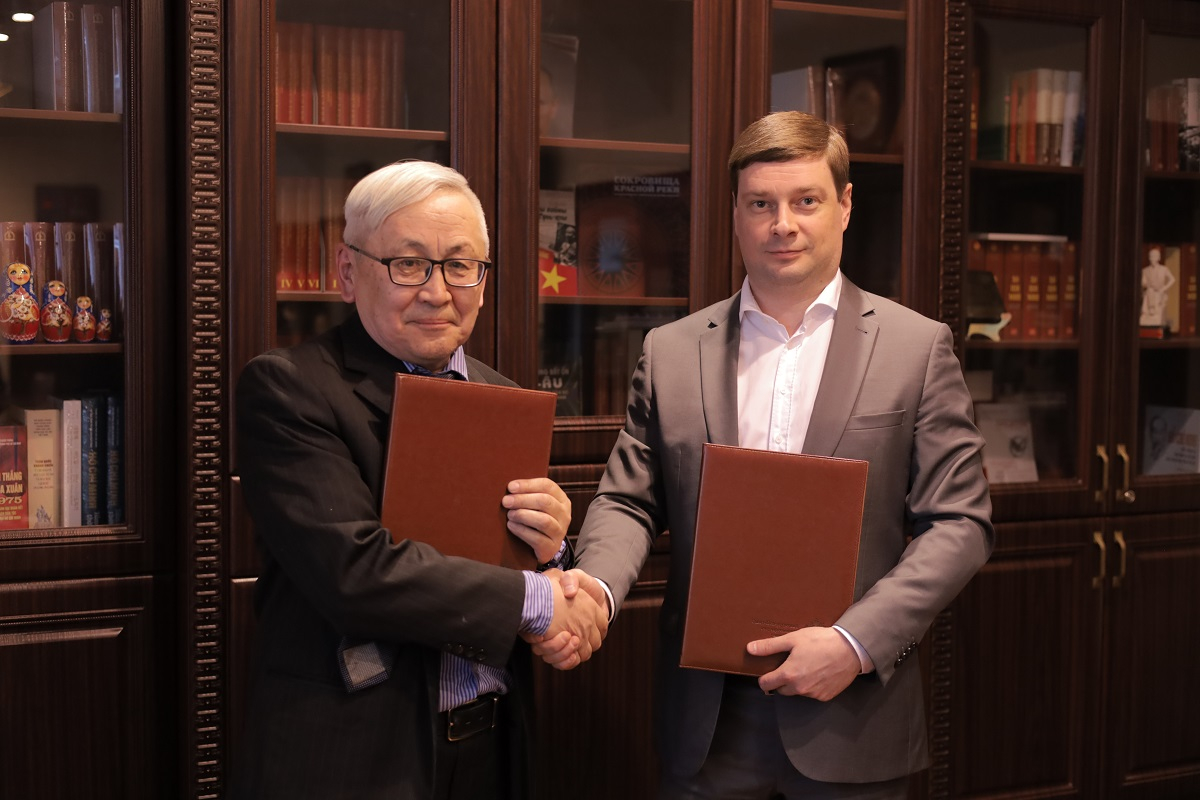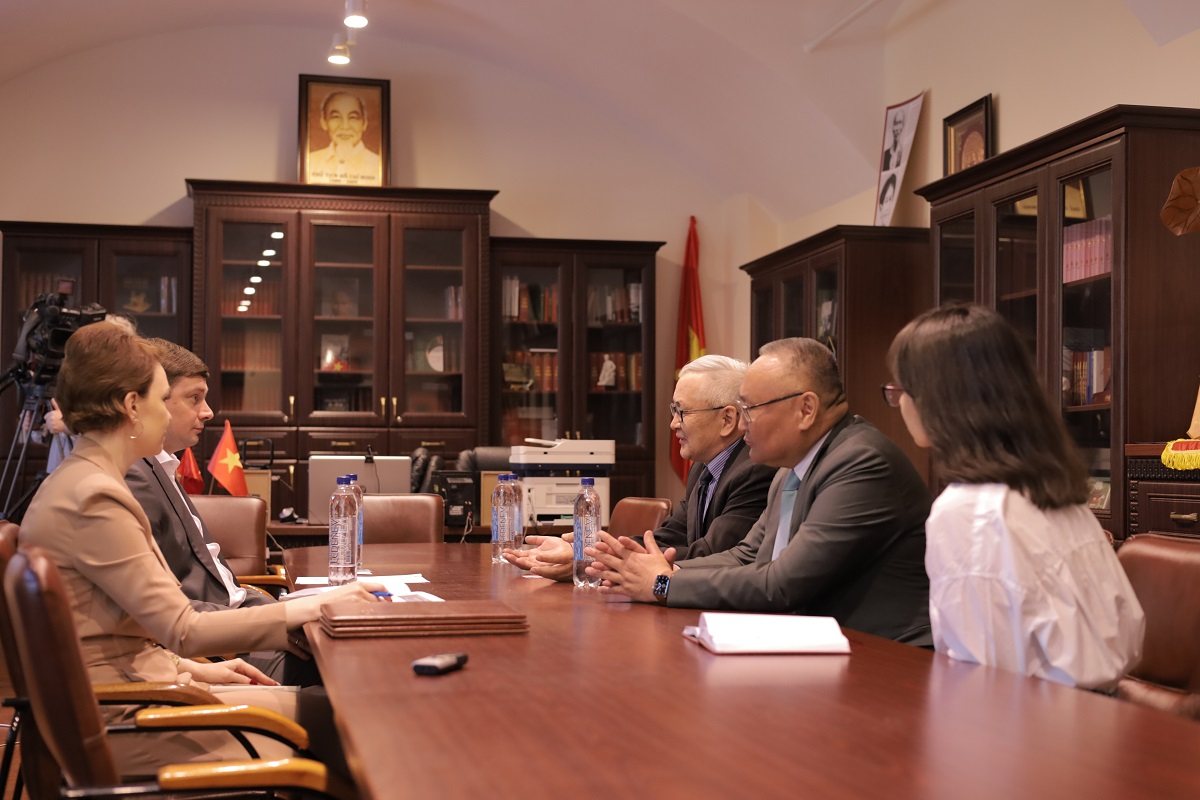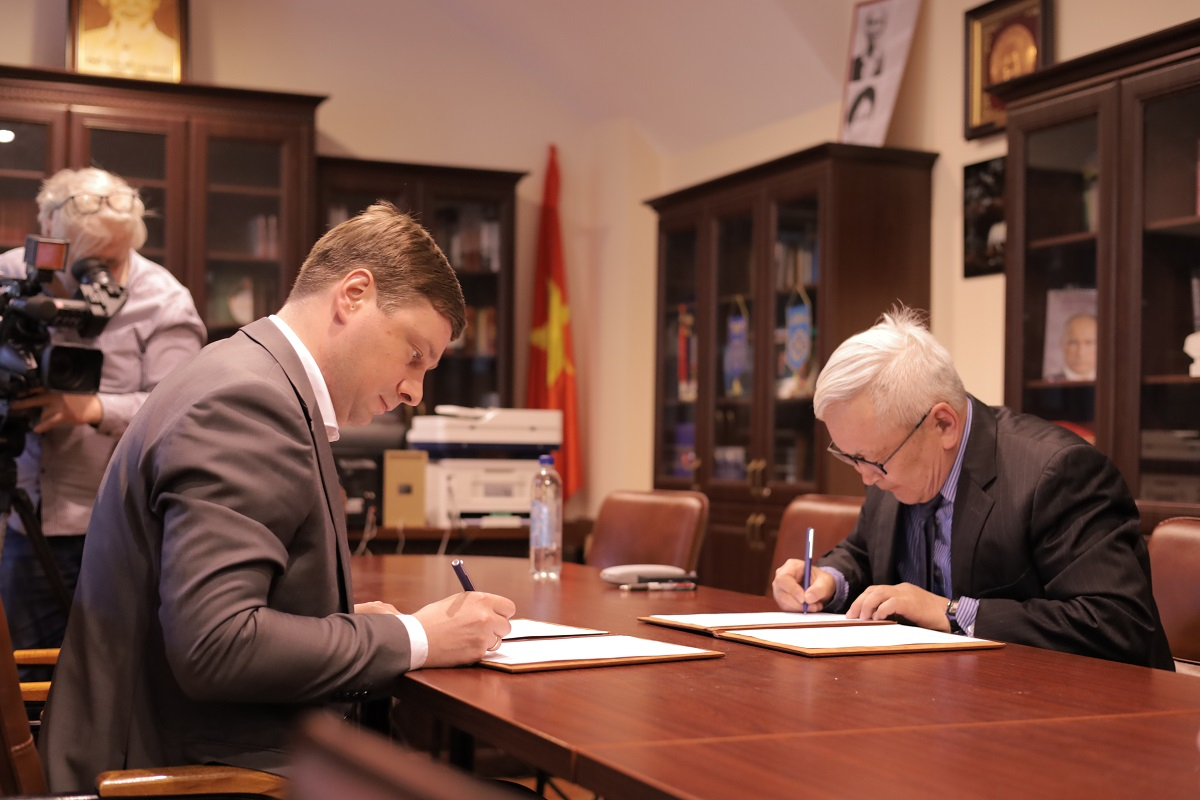‘We are interested in our graduates acting as ambassadors for the University’: St Petersburg University establishes ties with Mongolian graduates
The University has been visited by a delegation of the Mongolian Alumni Association of St Petersburg University.
Mr Demberel Tserenjav, Executive Director of the Mongolian Alumni Association of St Petersburg University, underlined that Mongolia has well-established relations with St Petersburg University. Representatives of the Mongolian government and parliament are frequent visitors to St Petersburg University. St Petersburg University researchers and academics have been awarded with state decorations of Mongolia. Also, there are plans to establish a Mongolian Cabinet on the St Petersburg University campus.
The Mongolian Alumni Association of St Petersburg University was organised in April 2015. Its goal is to unite Mongolian citizens who graduated from Leningrad State University / St Petersburg University.
Sergey Andryushin, Vice-Rector for International Affairs at St Petersburg University, expressed interest in cooperation with overseas graduates and in their active participation in the life of St Petersburg University. He outlined various formats of participation in the University’s academic life, including: involvement in the activities of the Councils of Academic Programmes as potential employers or as experts; or participating in the St Petersburg University Alumni Discussion Club.
‘We are interested in our graduates acting as ambassadors for the University, promoting the values and culture of St Petersburg University overseas,’ explained Sergey Andryushin. ‘We also want to be interesting for our graduates. We seek to create at the University an ecosystem that is conducive to the graduates’ involvement. We want to form an alumni community where everyone can find not only old classmates, but also partners interested in joint activities.’
‘Our contacts did decrease during the pandemic,’ admitted Mr Demberel Tserenjav. ‘But we cannot sit idly by. There are many interesting ideas waiting to be implemented. My five years at the University were the best years of my life; but one cannot live only on memories. We need to update our interactions.’
Mr Tsogsuren Ganbold, a member of the Mongolian Alumni Association of St Petersburg University, said the University graduates actively work for the benefit of their motherland. Among them are members of the State Great Khural, the Mongolian parliament, including: Ms Saldangiin Odontuya, Deputy Speaker of the State Great Khural of Mongolia; Ms Munhuugiin Oyunchimeg, Chairman of the Khural Standing Committee on Social Policy; and Mr Luvsantserengiin Enkh-Amgalan, Minister of Science and Education of Mongolia.
According to the Mongolian Alumni Association of St Petersburg University, the very first Mongolian students began their studies at Leningrad State University in the late 1950s. Since then, the number of Mongolian graduates of the University has reached some 600 people.
’65,000 citizens of Mongolia received higher education in the USSR,’ specified Mr Tzogsuren Ganbold. ‘We feel indebted and would like to give back to the University. We would like to contribute to promoting the Russian language and Russian culture in our country. Previously, every second person in Mongolia could speak Russian. Nowadays, its popularity has decreased, with fewer Mongolian citizens studying at Russian universities.’
Sergey Andryushin informed that applicants from Mongolia can apply for admission to the University either through the Russian House in Ulaanbaatar or through a Personal Account registered at the St Petersburg University Admissions Committee website. They can submit an application for admission within the quota, which is allocated directly by the University. ‘According to the Federal Agency for the Commonwealth of Independent States Affairs, Compatriots Living Abroad, and International Humanitarian Cooperation (Rossotrudnichestvo), St Petersburg University is the most popular university among international applicants who want to study in Russia. Meanwhile, the University offers many preparatory programmes for international applicants — in the Russian language and other subjects. There is also an Online School for international students,’ added Sergey Andryushin.
The meeting participants also discussed joint events and an action plan to enhance the partnership between the organisations. The meeting resulted in the cooperation agreement between St Petersburg University and the Mongolian Alumni Association of St Petersburg University.
The Mongolian guests are 1983 graduates of the Department of Journalism at Leningrad State University. After the meeting, they visited the Graduate School of Journalism and Mass Communication at St Petersburg University and met its director, Professor Anatoly Puyu. He spoke about the modern approach to teaching journalism at the University and the demand for mass communication programmes among Russian and international applicants. Demberel Tserenjav and Tsogsuren Ganbold mentioned that this year they mark the 40th anniversary of their graduation. They expressed their interest in establishing contacts with St Petersburg University academics and strengthening cooperation between the Mongolian professional community and Russia’s leading journalism schools, especially the Graduate School of Journalism and Mass Communication at St Petersburg University. Professor Puyu supported this idea and expressed the hope that there will be more students from Mongolia at St Petersburg University.




